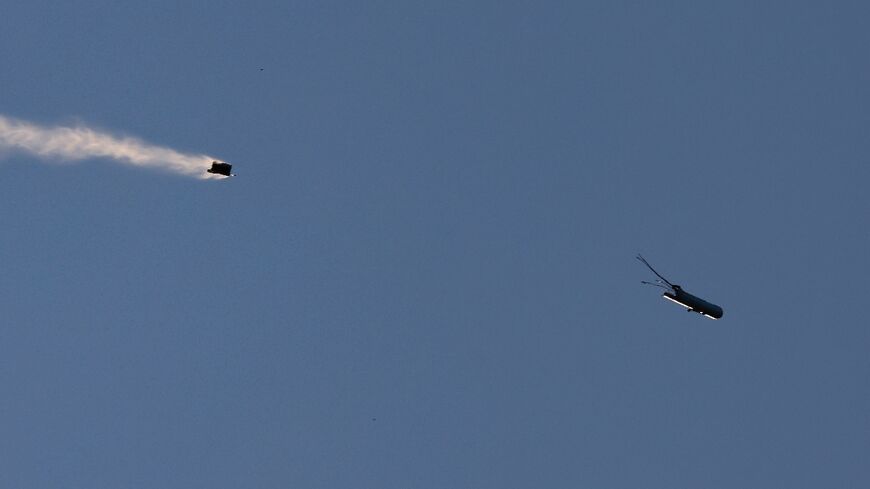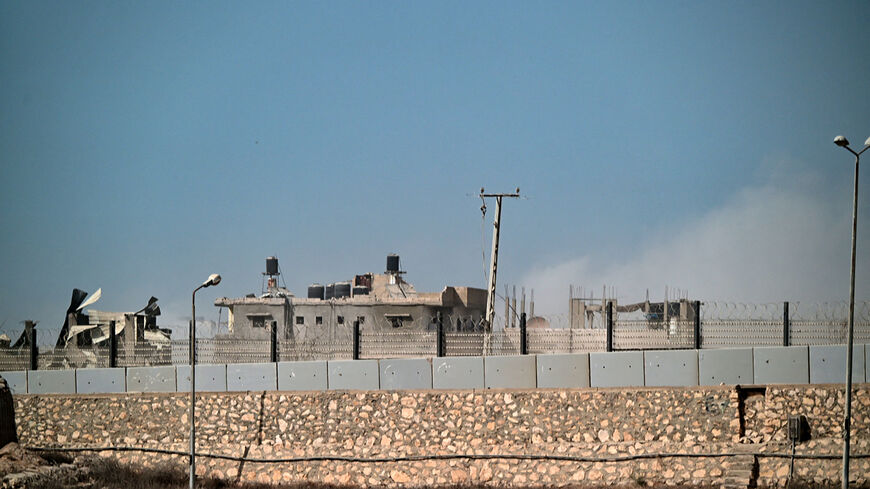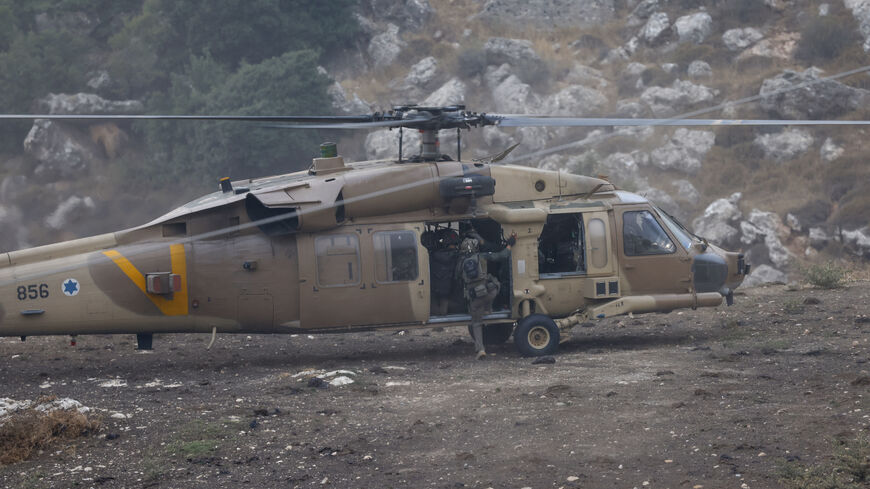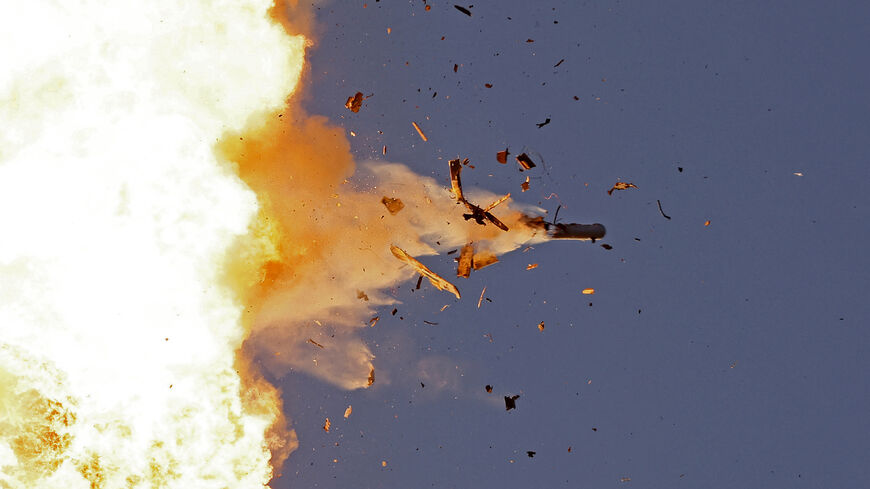Hezbollah's Nasrallah says group reserves 'right to respond' in future after cross-border fire with Israel
Hezbollah struck Israel in retaliation for last's month death of senior military official Fuad Shukr as a new round of cease-fire talks is set to begin in Cairo.

Hezbollah leader Hassan Nasrallah praised the group’s attack against Israel on Sunday, as he hinted at more potential strikes in the future.
In a televised speech, Nasrallah said the group will “follow up” on the results of its strikes against Israel.
“If the result is satisfactory, we will consider that the response process has been completed, and if the result is not sufficient, we will reserve the right to respond at a later time,” said Nasrallah, adding that Sunday’s assault was completed “as planned.”
The two warring sides exchanged messages in which both said they did not want to further escalate, Reuters reported earlier Sunday.
Nasrallah added that Israel’s Glilot base had been the “main target” for the group’s attacks, describing it as “the main Israeli military intelligence base.” The base is located roughly 75 kilometers (46 miles) from the Israel-Lebanon border and 40 kilometers (25 miles) from Tel Aviv.
The Lebanese group earlier Sunday announced its own cross-border attacks were aimed at avenging the killing of its senior commander, Fuad Shukr, last month.
Shukr was killed on July 30 in an Israeli strike near Beirut. Explaining the timing, Nasrallah said Hezbollah wanted to give negotiations on a Gaza cease-fire a “chance,” and he cited US and Israeli military mobilization.
Ahead of Nasrallah’s speech, the Lebanese group announced that they had fired more than 300 Katyusha rockets at 11 Israeli military sites as well as conducting an unspecified number of drone attacks.
Israel also launched airstrikes against Lebanon on Sunday, saying that it was aiming to thwart a large-scale Hezbollah attack. The Israeli military said its fighter jets had destroyed “thousands” of Hezbollah rocket launchers “aimed toward northern Israel, and some were aimed toward central Israel,” far from the border.
The Israeli army also added that the Hezbollah strikes caused only “a little damage,” while the Lebanese Health Ministry said at least three people were killed by Israeli airstrikes in southern Lebanon, according to the official National News Agency.
Speaking later Sunday, Nasrallah disputed Israel's account that it had destroyed thousands of Hezbollah rocket launchers, calling Israeli statements “not based on truth.”
Lebanon's caretaker Prime Minister Najib Mikati held an emergency meeting to discuss the escalation, the National News Agency reported. The office of the United Nations Special Coordinator for Lebanon, Jeanine Hennis-Plasschaert, and the UN Interim Force in Lebanon (UNIFIL) peacekeeping force urged “all to cease fire and refrain from further escalatory action.”
Israel, meanwhile, declared a state of emergency for 48 hours. Tel Aviv’s Ben Gurion International Airport was also briefly shut down.
In Lebanon, Beirut's airport did not close, but some airlines, including Royal Jordanian and Etihad Airways, canceled flights.
The Iran-backed Houthi rebels in Yemen hailed the Hezbollah attack in a statement declaring that their own response to an Israeli strike on a key Yemeni port on July 20 was “definitely coming.”
In a call with Israeli Defense Minister Yoav Gallant, US Defense Secretary Lloyd Austin “reaffirmed the United States' ironclad commitment to Israel's defense against any attacks by Iran and its regional partners and proxies,” the Pentagon said.
Meanwhile, Israeli negotiators arrived in the Egyptian capital, Cairo, on Sunday for talks on a Gaza cease-fire and hostage-release deal amid military escalation between Israel and Hezbollah.
The Israeli delegation, including Mossad head David Barnea and Shin Bet chief Ronen Bar, were expected to join CIA Director William Burns, Egyptian intelligence chief Abbas Kamel, and Qatari Prime Minister Mohammed bin Abdulrahman Al Thani.
Egyptian and Qatari negotiators are seeking to bridge the gaps between the demands of Hamas and Israel. Israeli Prime Minister Benjamin Netanyahu's refusal to fully withdraw his country’s military forces from Gaza remains a major sticking point.
Egyptian and Israeli officials will also seek reconciliation over the issue of the Philadelphi Corridor, which separates the Gaza Strip and Egypt.
Hamas has said a delegation would go to Cairo, but only to meet with Egyptian officials rather than participate in the discussions.
The fresh round of talks on Sunday follows US Secretary of State Antony Blinken’s ninth tour of the region last week as Washington ramps up diplomacy to thwart a potential reprisal by Iran for the killing of Hamas political chief Ismail Haniyeh in Tehran on July 31.









